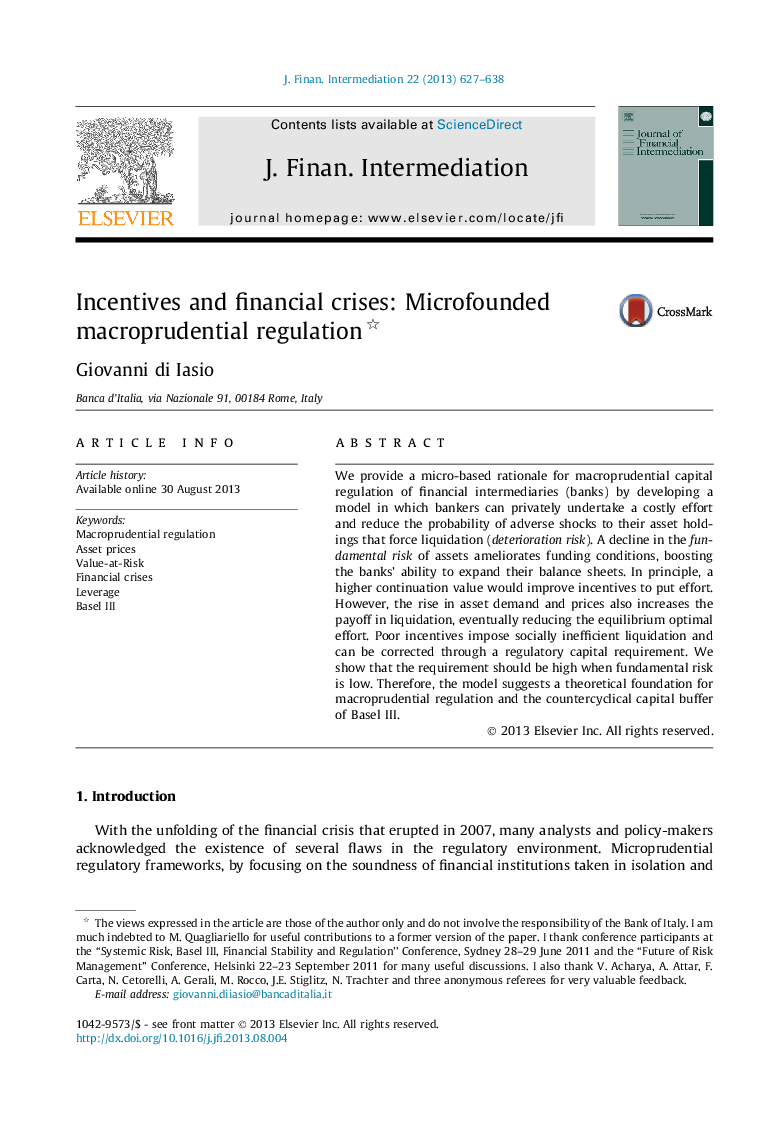| Article ID | Journal | Published Year | Pages | File Type |
|---|---|---|---|---|
| 961010 | Journal of Financial Intermediation | 2013 | 12 Pages |
Abstract
We provide a micro-based rationale for macroprudential capital regulation of financial intermediaries (banks) by developing a model in which bankers can privately undertake a costly effort and reduce the probability of adverse shocks to their asset holdings that force liquidation (deterioration risk). A decline in the fundamental risk of assets ameliorates funding conditions, boosting the banks' ability to expand their balance sheets. In principle, a higher continuation value would improve incentives to put effort. However, the rise in asset demand and prices also increases the payoff in liquidation, eventually reducing the equilibrium optimal effort. Poor incentives impose socially inefficient liquidation and can be corrected through a regulatory capital requirement. We show that the requirement should be high when fundamental risk is low. Therefore, the model suggests a theoretical foundation for macroprudential regulation and the countercyclical capital buffer of Basel III.
Related Topics
Social Sciences and Humanities
Business, Management and Accounting
Strategy and Management
Authors
Giovanni di Iasio,
